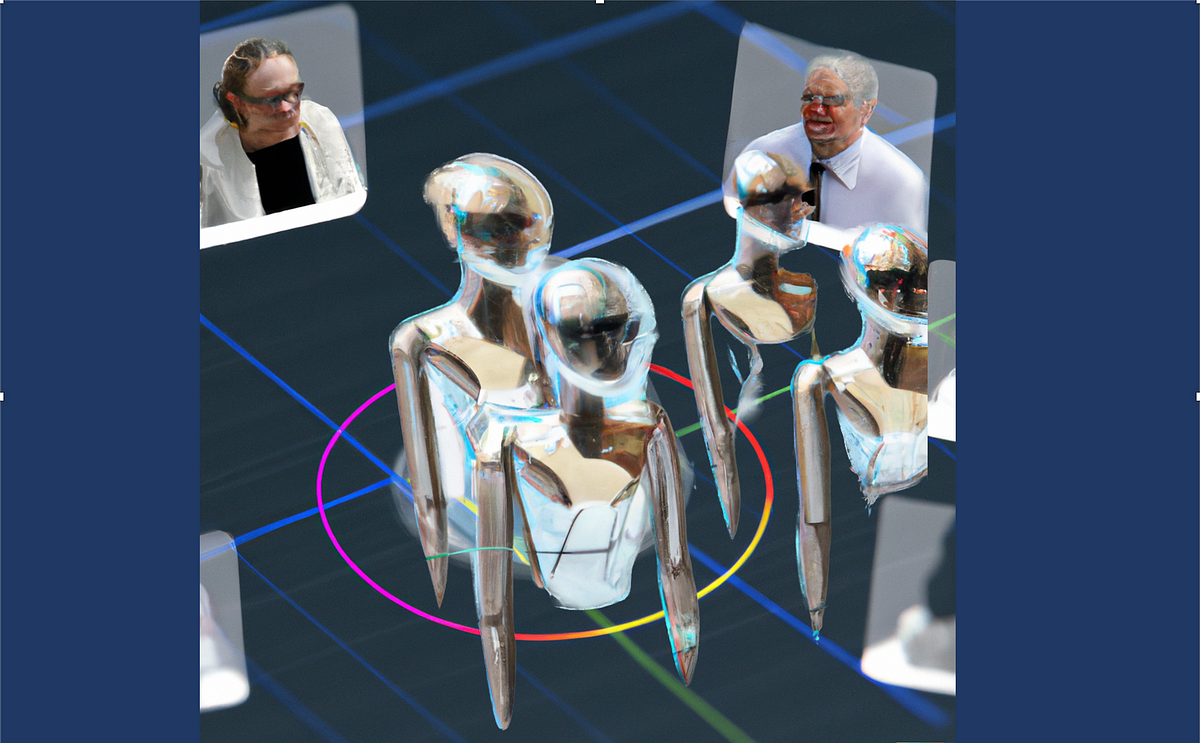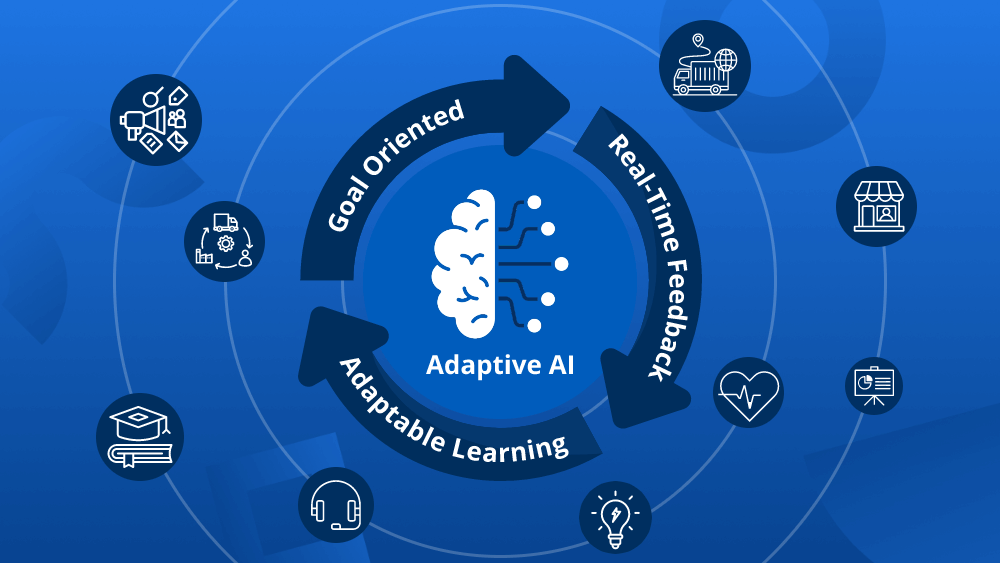Hey there, health enthusiasts! Get ready to dive into the thrilling world of healthcare, where Artificial Intelligence (AI) is like the cool superhero changing the game in drug discovery and personalized medicine. Imagine a scene where machines are cracking the code of biology, algorithms are the architects of amazing therapies, and AI companies are the heroes steering us into a healthcare revolution. Ready to join the adventure? We’re about to unveil how these digital wizards are turning lab experiments into real-life wonders, taking us on a journey where precision meets efficiency, and innovation has no limits. Buckle up for the friendly and futuristic story giving healthcare a new vibe! Welcome to the AI-powered revolution!
Challenges in Traditional Drug Discovery:
Traditional drug discovery methods are time-consuming, costly, and often yield unpredictable results. The lengthy process from target identification to clinical trials can take years and has a high attrition rate.
Need for Speed and Precision:
As the demand for novel and effective drugs continues to rise, there is an urgent need for innovative approaches that can accelerate the drug discovery pipeline while ensuring precision and safety.
A. Target Identification and Validation:
AI solutions companies leverage advanced algorithms to analyze vast datasets, identifying potential drug targets more efficiently. Machine learning models can predict the biological relevance of specific targets, streamlining the validation process.
B. High-Throughput Screening:
Although automated high-throughput screening is time-consuming, AI algorithms can analyze data from these screenings at unprecedented speed, identifying promising compounds and significantly expediting the hit-to-lead optimization phase.
C. Predictive Modeling for Drug Design:
AI-driven predictive modeling allows for the virtual screening of millions of chemical compounds, predicting their efficacy and potential side effects. This accelerates the drug design phase, reducing the time and resources needed for synthesis and testing.
D. Data Integration for Comprehensive Analysis:
AI in drug discovery integrates diverse datasets, including genomics, proteomics, and chemical structures. This comprehensive approach enhances understanding of complex biological systems, aiding in more accurate target identification and validation.
E. Identification of Rare Disease Targets:
Due to limited available data, traditional methods may struggle to identify targets for rare diseases. AI, however, excels in recognizing patterns within sparse datasets, facilitating the discovery of potential targets for rare diseases that might have been overlooked.
F. Drug Repurposing Opportunities:
AI algorithms can analyze existing datasets to identify approved drugs with the potential for repurposing in treating different conditions. This approach accelerates drug development by leveraging known safety profiles and clinical data.
G. Biomarker Discovery:
AI contributes to the identification of biomarkers associated with specific diseases. By analyzing molecular and clinical data, AI can pinpoint biomarkers that indicate disease presence, progression, or treatment response, enhancing diagnostic and therapeutic precision.
H. Integration of Real-World Evidence:
Incorporating real-world evidence, such as electronic health records and patient outcomes, into AI-driven drug discovery provides a more holistic understanding of drug performance in diverse patient populations. This integration enhances the reliability of predictions and decision-making.
I. Accelerated Hit-to-Lead Optimization:
AI expedites the hit-to-lead optimization phase by predicting the most promising drug candidates. Through iterative learning, AI algorithms analyze chemical structures and biological activity data, guiding researchers toward highly effective compounds and low toxicity.
J. Adaptive Clinical Trial Design:
AI plays a pivotal role in optimizing clinical trial design. By continuously analyzing accumulating data during trials, AI can recommend adaptive changes to the trial protocol, ensuring more efficient and patient-centric clinical development.
K. Personalized Drug Combinations:
AI-driven analysis of patient-specific data can identify optimal drug combinations tailored to individual genetic and molecular profiles. This personalized approach enhances treatment efficacy while minimizing adverse reactions.
A. Understanding Genetic Variations:
AI excels in processing and interpreting large-scale genomic data. By analyzing genetic variations, AI can identify potential biomarkers and therapeutic targets for personalized treatment approaches.
B. Tailoring Treatment Plans:
AI algorithms analyze patient-specific data, including genetic information, lifestyle factors, and medical history, to create personalized treatment plans. This approach minimizes adverse reactions and enhances treatment effectiveness.
C. Real-Time Treatment Adjustments:
AI solutions enable continuous patient data monitoring, allowing for real-time adjustments to treatment plans based on individual responses. This adaptability is crucial in managing chronic conditions and optimizing patient outcomes.
A. Collaborations and Partnerships:
Many pharmaceutical companies are recognizing the transformative potential of AI and are forming strategic partnerships with specialized AI solutions companies. These collaborations aim to combine domain expertise with cutting-edge AI technologies.
B. Industry-Leading AI Technologies:
Highlighting prominent AI solutions companies that are making waves in drug discovery and personalized medicine. Companies like IBM Watson Health, Insilico Medicine, and Atomwise employ sophisticated AI algorithms to unravel complex biological mysteries.
C. Innovation in Target Identification:
● Recursion Pharmaceuticals:
● AI-Enabled Drug Repurposing: Recursion Pharmaceuticals utilizes AI to explore existing drugs for new therapeutic indications, expediting the identification of potential treatments.
● Biological Image Analysis: The company’s AI-driven platform analyzes biological images to identify disease-related features, aiding in target identification and validation.
● Rare Diseases Focus: Recursion Pharmaceuticals has successfully applied AI to discover treatments for rare genetic diseases, showcasing the impact of AI on precision medicine.
D. Advancements in Personalized Medicine:
● Tempus:
● Clinical Data Insights: Tempus employs AI to analyze clinical and molecular data, providing oncologists with insights to personalize cancer treatment.
● Genomic Sequencing: The company’s platform integrates genomic data to tailor treatment plans, contributing to advancing precision medicine.
● Improving Patient Outcomes: Tempus aims to enhance patient outcomes by leveraging AI for data-driven decision-making in oncology and beyond.
E. AI-driven Drug Development Platforms:
● Numerate:
● Computational Drug Design: Numerate specializes in AI-driven computational drug design, optimizing lead compounds for enhanced efficacy.
● Predictive Modeling: The platform employs machine learning models to predict molecular interactions and properties, accelerating drug development.
● Collaborations with Pharma: Numerate collaborates with pharmaceutical companies to apply AI to the design of novel drug candidates across therapeutic areas.
Delving into specific case studies where AI solutions companies have significantly impacted drug discovery timelines and improved patient outcomes. These success stories showcase the tangible benefits of incorporating AI into healthcare workflows.
1) Atomwise’s AI-Discovered Ebola Drug:
● Background: Atomwise, an AI-driven drug discovery company, utilized its technology to identify potential compounds for treating Ebola.
● AI Approach: Atomwise’s AI platform performed virtual screens of existing drug databases to predict compounds with potential efficacy against the Ebola virus.
● Outcome: The AI-driven approach identified two existing drugs that demonstrated promising antiviral activity in laboratory tests. This significantly accelerated the drug discovery process for potential Ebola treatments.
2) BenevolentAI’s Contribution to ALS Drug Discovery:
● Background: BenevolentAI, a leading AI solutions company, focused on amyotrophic lateral sclerosis (ALS), a challenging neurodegenerative disease.
● AI Approach: The company’s AI algorithms analyzed biomedical data to identify novel targets and potential drug candidates for ALS treatment.
● Outcome: BenevolentAI’s AI-driven insights led to the discovery of a previously unrecognized target for ALS, opening new avenues for drug development. This groundbreaking discovery showcases AI’s ability to uncover novel therapeutic possibilities.
3) Recursion Pharmaceuticals’ AI-Enabled Drug Repurposing:
● Background: Recursion Pharmaceuticals leveraged AI for drug repurposing, exploring existing drugs for new therapeutic applications.
● AI Approach: Recursion’s platform analyzed large-scale biological data to identify compounds with potential efficacy in diseases beyond their original indications.
● Outcome: The AI-driven drug repurposing approach identified a known antimalarial drug with potential applications in combating a rare genetic disease. This demonstrates the versatility of AI in finding alternative uses for existing medications.
4) Insilico Medicine’s AI-Generated Drug Candidates:
● Background: Insilico Medicine specializes in using AI for generative drug discovery, creating novel drug candidates with specified properties.
● AI Approach: The company’s AI models generated virtual compounds with desired therapeutic properties, optimizing for factors such as efficacy and safety.
● Outcome: Insilico Medicine’s AI-generated drug candidates showed promising results in preclinical studies, illustrating the potential of AI in accelerating the early stages of drug development.
5) IBM Watson for Drug Discovery in Oncology:
● Background: IBM Watson for Drug Discovery applied AI to accelerate research in oncology, focusing on identifying potential cancer treatments.
● AI Approach: IBM Watson analyzed vast scientific literature, clinical trial data, and genomic information to uncover potential drug candidates.
● Outcome: The AI-powered system identified novel combinations of existing drugs that demonstrated efficacy in specific cancer types. This exemplifies AI’s role in uncovering synergies and accelerating personalized medicine approaches.
6) Numerate’s AI-Enhanced Drug Design:
● Background: Numerate employed AI for drug design, emphasizing the optimization of lead compounds for enhanced efficacy.
● AI Approach: The company’s AI algorithms analyzed chemical structures and biological data to guide the design of novel drug candidates.
● Outcome: Numerate’s AI-driven drug design approach led to the creation of optimized lead compounds with improved pharmacological properties, showcasing AI’s impact on the drug optimization process.
V. Ethical Considerations and Regulatory Framework:
A. Data Privacy and Security:
As AI relies heavily on vast datasets, ensuring the privacy and security of patient information becomes a paramount concern. Ethical AI practices involve transparent data handling and robust security measures to safeguard sensitive information.
B. Regulatory Compliance:
The integration of AI in drug discovery and personalized medicine necessitates clear regulatory frameworks. Health authorities worldwide are working towards establishing guidelines ensuring AI-driven healthcare solutions’ safety and efficacy.
C. Informed Consent and Patient Autonomy:
● Ethical Principle: Respecting patient autonomy and ensuring informed consent are critical in AI-driven healthcare. Patients should be adequately informed about the use of AI in their treatment, including data utilization and potential outcomes.
● Implementation: Healthcare providers employing AI technologies must establish transparent communication channels with patients. They should provide clear explanations regarding the role of AI, its impact on decision-making, and the implications for personal data, allowing patients to make informed choices.
D. Bias and Fairness in AI Algorithms:
● Ethical Concern: AI algorithms are susceptible to biases in training data, potentially leading to discriminatory outcomes. Addressing bias and ensuring algorithmic fairness are ethical imperatives to prevent disparities in healthcare delivery.
● Mitigation Strategies: AI solutions companies and healthcare institutions must actively address biases during algorithm development. Regular audits, diverse and representative datasets, and ongoing monitoring can help identify and rectify biases, promoting fairness in AI applications.
E. Accountability and Transparency:
● Ethical Imperative: Establishing accountability mechanisms is crucial in AI-driven drug discovery and personalized medicine. Transparency in AI algorithms’ decision-making processes ensures responsible parties can be held accountable for their actions.
● Implementation: AI developers and healthcare organizations should provide clear documentation on the functioning of AI models. Transparent reporting mechanisms and accountability frameworks help build trust among stakeholders and mitigate concerns related to AI decision-making.
F. Long-term Impact on Employment and Healthcare Professionals:
● Ethical Consideration: The widespread adoption of AI in healthcare may impact employment dynamics and the roles of healthcare professionals. Ethical considerations extend to ensuring a just transition for professionals affected by technological advancements.
● Mitigation Measures: Organizations deploying AI solutions should prioritize workforce planning and provide support for retraining and upskilling affected professionals. Ethical frameworks should be in place to manage the societal impact of AI on employment within the healthcare sector.
A. Advancements in AI Technologies:
Predicting the future trajectory of AI in drug discovery and personalized medicine. Anticipating breakthroughs in AI algorithms, machine learning models, and computational capabilities that will further enhance efficiency and accuracy.
B. Patient-Centric Healthcare:
Envisioning a future where AI-driven personalized medicine becomes the cornerstone of patient-centric healthcare. Tailored treatments, minimized side effects, and improved overall patient outcomes are central to this evolving paradigm.
C. Global Collaborations and Knowledge Sharing:
The importance of fostering global collaborations and knowledge sharing among AI solutions companies, pharmaceutical firms, healthcare providers, and regulatory bodies. Collective efforts can accelerate progress and ensure that AI benefits patients worldwide.
As we traverse the exciting intersection of AI and healthcare, the role of AI solutions companies in advancing drug discovery and personalized medicine cannot be overstated. From


